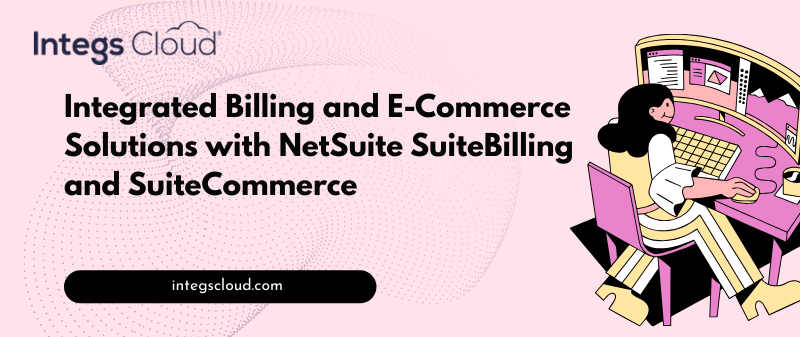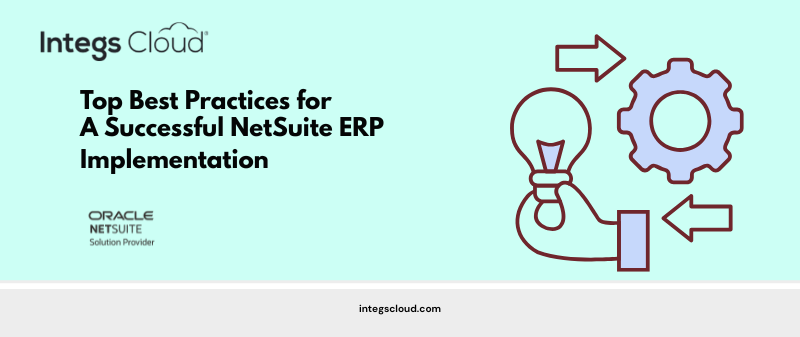The ERP-Driven Evolution of E-Commerce and Billing
In a digitally powered business landscape, online transactions and subscription-based billing models have become the norm. E-commerce companies are not only selling online but also offering complex pricing models—subscriptions, usage-based plans, promotional pricing, and more. This makes billing and e-commerce integration more important than ever.
When your billing system doesn’t sync with your online storefront, it opens the door to issues like incorrect charges, delayed invoicing, poor customer experiences, and operational inefficiencies. That’s why businesses using Oracle NetSuite often find themselves exploring SuiteBilling and SuiteCommerce—two powerful modules that handle billing and e-commerce respectively, but with different use cases.
Understanding how these two solutions differ—and how they can work together—can unlock a smarter, smoother way to manage your customer journey from checkout to recurring billing.
What is NetSuite SuiteBilling?
SuiteBilling is Oracle NetSuite’s native billing management module designed to handle complex pricing, subscription billing, and invoicing models—all within the ERP. Whether you’re offering one-time products, usage-based services, or recurring subscriptions, SuiteBilling lets you manage it all in a unified platform.
Key Features of SuiteBilling:
-
Flexible Billing Models: Supports flat-rate, tiered, volume-based, and usage-based pricing.
-
Subscription Management: Automates renewals, mid-cycle upgrades/downgrades, and plan changes.
-
Automated Invoicing: Auto-generates invoices based on billing cycles or usage data.
-
Revenue Recognition: Compliant with ASC 606 and IFRS 15, enabling accurate revenue tracking.
-
Seamless Integration: As a native module, it integrates directly with NetSuite financials, CRM, and project management.
Use Case: Ideal for SaaS, telcos, professional services, or any business offering subscriptions or complex billing structures.
What is Oracle NetSuite SuiteCommerce?
SuiteCommerce is NetSuite’s e-commerce platform that allows businesses to create and manage online stores directly integrated with Oracle NetSuite ERP. It helps you manage product catalogs, online orders, customer accounts, promotions, and fulfillment from a single system.
Key Features of SuiteCommerce:
-
Unified Data: Connects inventory, orders, customer records, and financials in real-time.
-
Mobile-Responsive Storefronts: Built-in themes and customization options for mobile-friendly shopping experiences.
-
Customer Portal: Customers can view order history, subscriptions, and invoices.
-
Multi-Currency and Multi-Language Support: Perfect for global e-commerce operations.
-
Real-Time Inventory and Pricing: Ensures shoppers see accurate stock levels and pricing, including discounts or promotions.
Use Case: Perfect for B2C and B2B companies looking for an end-to-end ERP-integrated e-commerce solution.
SuiteBilling vs. SuiteCommerce: The Core Differences
|
Feature |
SuiteBilling |
SuiteCommerce |
|
Primary Purpose |
Manage complex billing & subscriptions |
Manage online storefront & shopping experience |
|
Core Functions |
Billing, invoicing, subscription, revenue tracking |
Product listings, cart, order management |
|
Customer Interaction |
Post-sale (billing and renewals) |
Pre-sale and point-of-sale |
|
Integration with NetSuite |
Native – deeply tied to financials and CRM |
Native – fully synced with inventory, sales, CRM |
|
Best For |
SaaS, telecom, services businesses |
Retailers, wholesalers, direct-to-consumer brands |
|
Subscription Management |
Full-featured |
Basic (enhanced when combined with SuiteBilling) |
Why Integration Between the Two Matters
Many businesses today need the capabilities of both SuiteCommerce and SuiteBilling. A retail or B2B company might sell physical goods through an online store while also offering subscription services like memberships, premium support, or digital content. That’s where integrating SuiteBilling with SuiteCommerce becomes valuable.
When these two modules work together:
-
Checkout triggers billing: A customer buying a subscription product via SuiteCommerce is automatically enrolled in SuiteBilling.
-
Real-time visibility: Customers can log in and view current and past subscriptions, invoices, and billing details directly from the e-commerce portal.
-
Automated workflows: From purchase to renewal, all steps are managed and recorded within Oracle NetSuite, reducing manual work and human error.
-
Consistent Customer Experience: Whether your customer is shopping, upgrading a plan, or checking an invoice, the experience is seamless.
This synergy creates a single source of truth across departments—finance, sales, customer support, and marketing—leading to better decisions and more efficient processes.
Benefits of Using Both SuiteBilling and SuiteCommerce
1. Faster Order-to-Cash
With billing and e-commerce tied together, businesses can accelerate cash flow by reducing delays between order placement and invoicing.
2. Lower Operational Costs
Automation reduces manual intervention, customer disputes, and billing errors—saving time and money.
3. Improved Customer Experience
Customers can manage subscriptions, pay invoices, and shop online—all from one portal.
4. Better Data, Better Decisions
Having complete sales and billing data in one system enables better forecasting, targeted marketing, and smarter product development.
5. Scalability
As your product catalog, customer base, or subscription offerings grow, Oracle NetSuite’s modular approach allows you to scale without migrating platforms.
Real-World Example
Imagine a company that sells water purifiers online and also offers annual maintenance subscriptions. With SuiteCommerce, the customer browses and purchases a purifier. At checkout, they’re offered a maintenance plan as an add-on. This triggers SuiteBilling, which then manages invoicing and yearly renewals automatically. The customer gets a single portal to manage their order and subscription, while the business handles everything from inventory to revenue recognition inside NetSuite.
Final Thoughts
Choosing between SuiteBilling and SuiteCommerce isn’t really about picking one over the other—it’s about understanding what each module offers and how they can work together to support both product sales and service subscriptions. For businesses looking to streamline their customer experience from storefront to billing, the integration of both systems inside the NetSuite ecosystem is a powerful advantage.
Contact Integs Cloud
At Integs Cloud, we help businesses unlock the full potential of Oracle NetSuite with expert implementation, customization, and integration of SuiteBilling, SuiteCommerce, and more. Whether you’re launching a subscription model, expanding your e-commerce footprint, or looking to unify both, our team ensures a seamless, scalable solution tailored to your needs.
For e-commerce and billing solutions powered by NetSuite, trust Integs Cloud to simplify complexity and accelerate growth.
Need help integrating SuiteBilling and SuiteCommerce? Contact Integs Cloud today to explore the right-fit solution for your business!



